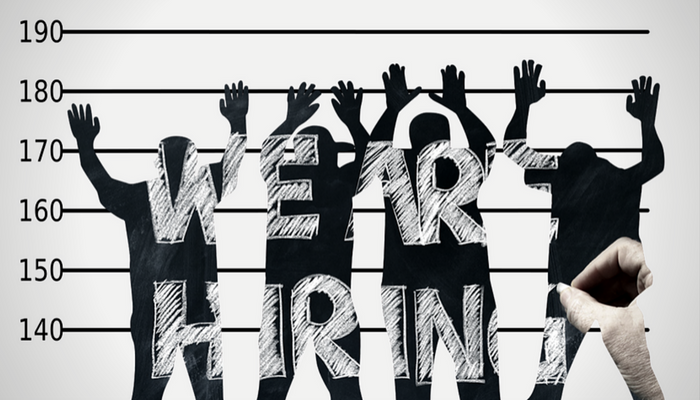New York employers cannot have blanket policies against hiring employees with criminal records. Instead, they must carefully consider several factors before using an applicant’s criminal record to deny employment.
(Some cities in New York have passed “ban-the-box laws” that prohibit employers from asking about criminal convictions on job applications. Read more about that topic here.)
New York Corrections Law
The New York Corrections Law codifies the state’s public policy supporting employment of people with criminal records.
It provides that employers may not make negative employment decisions by reason of the individual’s having been previously convicted of one or more criminal offenses, or by reason of a finding of lack of ‘good moral character’ when such finding is based upon the fact that the individual has previously been convicted of one or more criminal offenses, unless:
(1) there is a direct relationship between one or more of the previous criminal offenses and the specific employment sought or held by the individual; or
(2) the granting or continuation of the employment would involve an unreasonable risk to property or to the safety or welfare of specific individuals or the general public.
Note that this law only applies to prior convictions. It does not apply to convictions occurring during employment with the employer in question.
The law identifies 8 factors that employers must consider in deciding whether a criminal conviction disqualifies an individual from employment in a particular position.
The factors are:
- New York’s public policy encouraging the employment of persons previously convicted of one or more criminal offenses.
- The specific duties and responsibilities necessarily related to the employment sought or held by the person.
- The bearing, if any, the criminal offense or offenses for which the person was previously convicted will have on his fitness or ability to perform one or more of the job’s duties or responsibilities.
- The time elapsed since the criminal offense or offenses.
- The age of the person at the time of the criminal offense or offenses.
- The seriousness of the offense or offenses.
- Any information produced by the person, or produced on his behalf, regarding his rehabilitation and good conduct.
- The legitimate interest of the employer in protecting property and the safety and welfare of specific individuals or the general public.
Notice to Applicant
If a job candidate with a criminal record asks an employer for a statement of the reasons they were denied employment, then the employer must provide one in writing within 30 days.
Employers who learn of criminal records through background checks must satisfy additional notice requirements.
New York Human Rights Law
An employee with a criminal record can claim discrimination on this basis under the New York State Human Rights Law. This law prohibits many forms of employment discrimination, including race, sex, age, and disability discrimination. But it also specifically references violation of the Corrections Law provisions above as violating the Human Rights Law.
As a result, applicants and employees can file claims of criminal record discrimination like other employment discrimination claims in New York. This means they can file a complaint with the New York State Division of Human Rights or directly with a court.
Criminal Records and Federal Employment Law
Federal employment law does not expressly protect employees with criminal records. However, in 2012, the U.S. Equal Employment Opportunity Commission (EEOC) issued guidance cautioning employers.
The EEOC explained how employment decisions based on criminal records could result in discrimination based on another protected category. Specifically, because certain races and ethnic groups represent a disproportionate percentage of individuals with criminal records, denying employment based on convictions is arguably the same as denying it based on race, national origin, etc.
The EEOC expects employers to consider various factors before making employment decisions based on criminal records. These are similar to the New York Corrections Law factors listed above.
How To Stay Out of Trouble
These laws do not say that employers can’t use criminal records as part of their employment decisions. Rather, they mean that employers must evaluate each situation individually.
Employers should document their consideration of all of factors listed above any time they deny employment based on a prior criminal conviction. This documentation alone will improve your defense of a criminal record discrimination claim. Employers who can’t show they weighed the statutory factors may not be able to overcome that failure.
Remember that the overriding question is how closely related the convictions are to the jobs in question. Banks probably need not hire former bank robbers. But clothing stores probably can’t turn down applicants because of their misdemeanor public intoxication charges from college.
The facts of each case matter. If there is any doubt, then you should speak with an employment lawyer familiar with these situations before proceeding. If you didn’t, and now face a discrimination complaint, read this.
